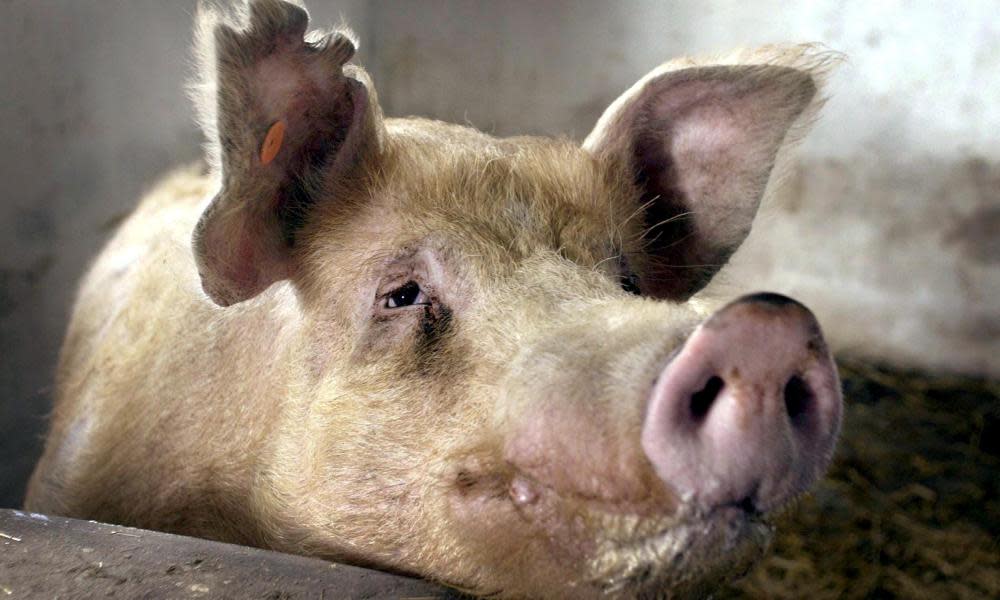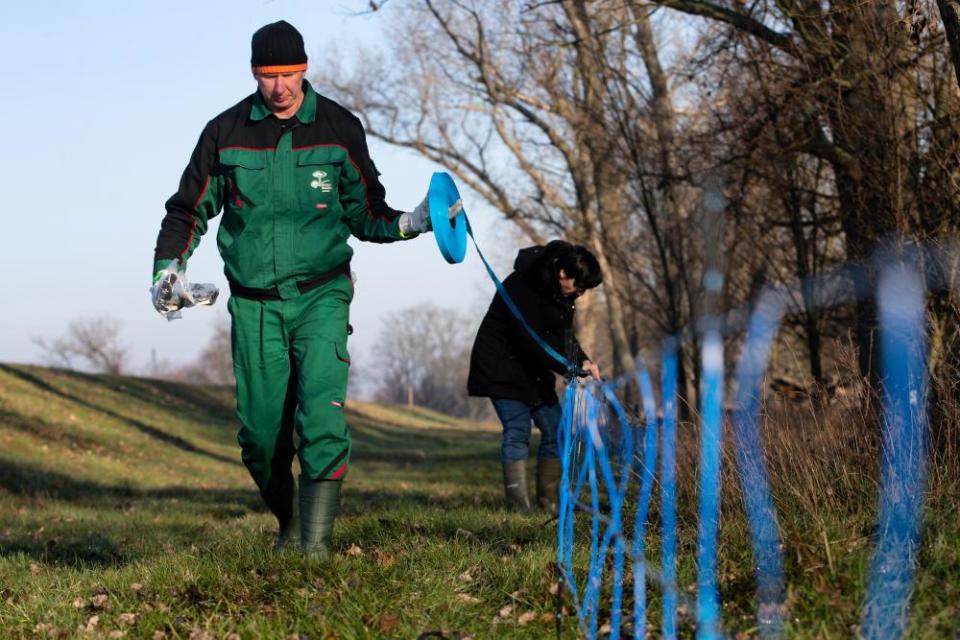African swine fever outbreak reported in western Poland

An outbreak of African swine fever (ASF) was confirmed on Monday on a farm near the village of Więckowice near Poznań in western Poland, less than 150km (93 miles) from the border with Germany.
African swine fever is a highly contagious virus which is fatal to pigs. It is transmitted directly between animals or through infected meat or animal feed and has also been seen as having the potential to transmit to humans. There is an ongoing outbreak in China that has already already wiped out 40% of pigs in the country.
Related: African swine fever destroying small pig farms, as factory farming booms – report
The outbreak is Poland’s second in 2020 and the first in the Poznań region, an important centre of pig farming.
The source of the infection were ASF-positive piglets that the farm owner, Smithfield Foods’ subsidiary Agri Plus, purchased in mid-March.
The farm in Więckowice specialises in fattening piglets up to 30kg. There are just over 10,000 piglets on the farm that will have to be culled, local authorities said, but the eradication of the outbreak might be slowed by safety and social distancing measures imposed in Poland in order to stop the spread of Covid-19.
The spread of ASF on pig farms and in wild boars in western Poland is a concern for Germany, Europe’s top pork producer with approximately 26 million pigs. Germany is also the EU’s second largest pork exporter to non-EU markets, after Spain. Most German exports go to China, South Korea and Japan. Should any of those markets – China in particular – classify Germany as an ASF country, it could herald a major crisis for the German pork industry.
That would also spell trouble for Polish pork producers: a Chinese ban on German pork could lead to it flooding the EU market, depressing prices.
Wild boar spreading disease
But ASF on pig farms is just one source of potential problems for German pork producers. Another – and more serious – is wild boars, over which there is much less control. There have been more than 1,600 ASF cases in wild boars in 2020 in Poland to date, only 600 fewer than in the whole of 2019, according to data from the General Veterinary Inspectorate.
Poland passed a special law on containing ASF in December last year that gave Polish hunting associations new powers in culling wild boar.
But the hunting associations are regularly accused of disregarding safety measures and helping, rather than curbing, the spread of the disease. In early 2020, private broadcaster TVN24 allegedly exposed the lax biosecurity measures of one of the hunting associations, prompting a criminal investigation.
The German states of Brandenburg and Saxony have both recently built fences along the border with Poland to prevent wild boars from entering.

“Jumps over large distances in the disease spread (eg within Poland, to Belgium, Hungary, the Czech Republic) clearly show the existing risk of introduction into Germany through human activity. The Friedrich-Loeffler-Institut (FLI) is especially concerned about the situation in wild boar in Poland as the last cases are only about 10km from the German border,” said Elke Reinking, a spokesperson for FLI, Germany’s federal research institute for animal health.
About 10 European countries are currently suffering from ASF, the most recent being Greece, where the first case was recorded in early February in the region of Serres, close to Bulgaria and North Macedonia.
China has ‘very serious problem’ with ASF
In China, authorities have launched a 60-day campaign until 1 June to crack down on improper or illegal transportation of pigs to reduce ASF transmission.
An unnamed ministry of agriculture official said last week that China has had no widespread ASF outbreaks in the first three months of the year, though there have been eight local outbreaks leading to the death of 738 pigs.
Two recent cases occurred in Gansu province in north-central China in March and early April where trucks illegally transporting piglets to other provinces were detected at toll booths. In one case authorities said that 67 out of 110 piglets died of the illness.
A similar incident happened in Chongqing, a major municipality in central China in which 67 out of 298 piglets illegally brought into the area died, according to an 5 April report from state-run media. The reports did not say if the surviving pigs were culled.
Some areas are also stepping up measures for containing ASF by requiring larger-scale slaughtering operations alongside an overall push for bigger, more centralised farms.
Hebei province, which surrounds the capital Beijing, announced on 7 April that it will now forbid pig slaughtering facilities with capacities of less than 150,000 pigs per year.

The agriculture ministry stated in late March that “incidence of African swine flu was significantly lower” over the first three months of 2020 compared to the same period a year before, with only 324 pigs officially culled in that period.
Others who have followed the outbreak closely are less optimistic that China has a handle on the outbreak.
“China is still having very, very serious problems with African swine fever and the government has done absolutely nothing that has been effective,” said Wayne Johnson, a veterinarian at farm services company Enable Agricultural Technology Consulting, who is based in Beijing.
“They could have stopped it early but they did nothing,” said Johnson. “They even forbade people to test for it. There are pigs going to the slaughterhouse every day with ASF. They don’t clean the trucks. The local governments refused to diagnose it as African swine fever, because if they did, they would have to pay an indemnity since the law is that they now have to pay if the farm has ASF.”


